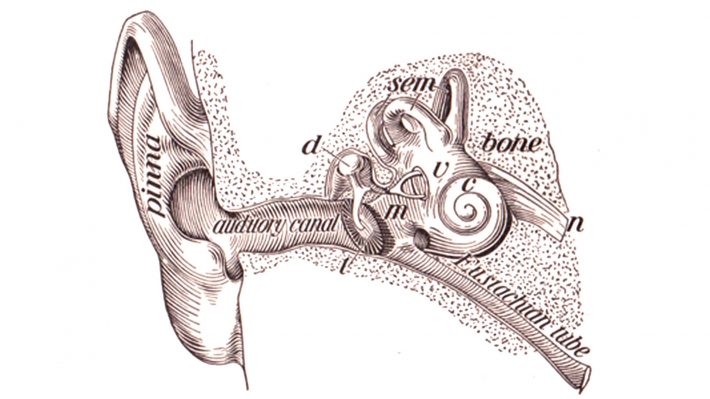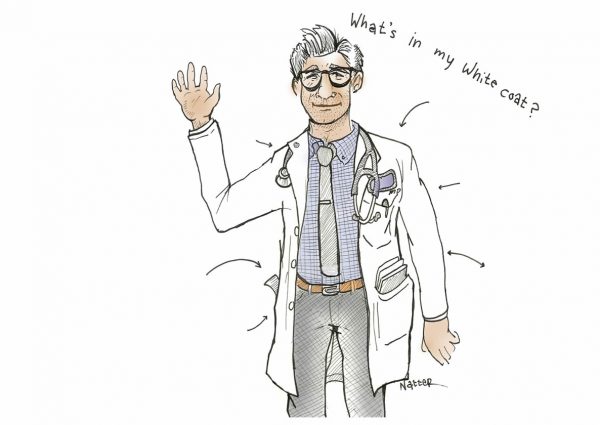Listen*:
Transcript:
Reading I:
I want to read you one short scene in which we see how repulsed he [Dan, Laura’s husband] is by the apparatus that he thinks has replaced this beautiful woman:
There is a bag of absorbent panty liners on the kitchen counter. He turns it in his hands; his anger nearly chokes him.
He is sure he doesn’t know an uglier word in the English language than prosthesis. His first, inadvertent imagining when he heard it was of an artificial penis, something pink and rubbery, held on by straps attached by tubing to the hidden glands. He couldn’t imagine Laura and the word at the same time without gagging. The catalog of inventions! What was worth it? The Queen Mary Tub Seat, the Swedish Grip Tong, the Bac-a-rac Bedboard. Less than ten ounces, made of sections riveted together in the center with a washer applied for smooth operation. The cock-up splint and the rotary splint, the flexor hinge hand-splint that lifts your wrist with a whiff of CO2, kids love it, they’ll come from miles around to see: if you can’t order a normal parent, order one whose wrist lifts at the flick of a switch, like Howdy Doody.
…
Prosthesis lived in a crack in the dictionary between prosthenic (stronger in the foreparts) and prostibulous (pertaining to prostitutes). ‘No, Mr. Courser, she isn’t in need of a prosthesis,’ Mrs. Toko kept assuring him, irritated. ‘Why have you fixed on that? Prostheses take the place of missing limbs. Your wife–‘ Is only disconnected, he thought. The plugs pulled, the current shorted. ‘Your wife will have other systems of support.’ ‘Like a man in space,’ he said, imagining commands from Houston coming in to her, those crewcut midwest voices telling her when to move, to laugh, to pee. ‘Affirmative,’ she’d say and move not a single finger.
Reading II:
Finally I will tell you that, although this book has no happy ending–because, again, she does not, cannot, walk off into the sunset healed–what it does have is a coming to terms with the question that I raised, which is, ‘What do we love about each other, essentially?’ And that thing that they come to realize they love in each other, and what their marriage is about, is a kind of–it’s the fine-tuning of concentration on what each of them has to say that represents what there is between them. And in the final scene–I end with a scene in which Dan is finally able to approach his wife physically, sexually, because I do believe, as people have said, that sex takes place between the ears, as much as anywhere else.”
‘You came back, Danny. Why did you come back?’ Her voice is so tired, [By the way, we’ve heard from her through the novel in excerpts that are just disembodied voice, they’re very poetic and far from realistic, but I thought: she has nothing of her body left–we might as well give her a really eloquent and beautiful voice; and one long riff that she does is just what it feels like to try to move her finger, realizes that she just cannot do that, and decides that she’s just got to get on with her life. It’s a strange section that I enjoyed writing a lot]. . . .
He sits naked on the edge of the bed. ‘Since when do you want to get things all said, chicken? You used to tell me to shut my mouth and drive.’ He smoothes the hair from her eyes. It is getting long again, red again, it makes her blink to have it lifted. ‘You used to cover up my mouth with your hot little hand, like a goddam Ace bandage. Like this. Remember?’ He picks up her wrist roughly and holds her fingers to his mouth, pressing hard. He presses till it hurts, her curved hand against his lips against his teeth. She could be touching him anywhere: he feels it to his toes.
Author’s Commentary:
Commentary I:
“What I decided was that I wanted to make this the story of a marriage, a story that would ultimately ask the question: what is it that we love in someone, besides the things that they can do for us? What would you love in your spouse or your lover who could no longer perform in the kitchen, or the bedroom, or drive the car pool, or whatever those things may be out of which a life is assembled? If there’s nothing left of her, in this case, but her voice and her mind–a not inconsiderable thing–what is left?”
Commentary II:
“The research for this book was done by reading, by talking to a woman I knew who was a physical therapist, and then–this was quite an amazing thing–I realized when I was about a third of the book, into the book, that I had once read an article in Ms. Magazine about a woman who was a quadriplegic. I went in search of it, and when I found it in the library I discovered that she sounded just like my character–which means, of course, that my character sounded just like her. In fact it was not a coincidence that there was a certain kind of bitterness, a certain kind of irony that probably any number of intelligent, well-educated people rendered totally immovable–immobile from the neck down–would come out sounding like. The article had said just enough about the fact that she lived in a nursing home somewhere in the Washington area, and when I was there one time I simply looked in all the phone books. I thought: she’s got a job, she works, she must be listed. And in fact, I found her in Maryland and I told her what I was doing. I said, ‘I’m writing a book about a quadriplegic woman and I’d like to talk to you if I may.’ She said, ‘Why would you do that? Who’d be interested in that?’ And I said, ‘Well, let me worry about that. If I could just come and see you and meet you and talk to you?’ I had never met a quadriplegic before. And she was immensely helpful to me. She let me sit around and watch everything that was done to her. I got up to leave at one point when they came in to change her urine bag, or whatever you call that, I don’t remember any more precisely, and she said, ‘Don’t leave.’ She said, ‘ I don’t mind if you see this–you know, my sense of privacy has gone somewhere else. It’s not in my body anymore.’ And I write about this a lot in the book: ‘I’ve been so man-handled or woman-handled or whatever it is, people-handed, that I don’t care what you see them doing to me, because that’s not where I am anymore.'”
*Audio and text of commentary reproduced with the permission of Rosellen Brown, 1996. Text of readings from Tender Mercies by Rosellen Brown. Copyright (c) 1978 by Rosellen Brown. Originally published by Alfred A. Knopf. Reprinted by arrangement with the Virginia Barber Literary Agency and Rosellen Brown. All rights reserved.








